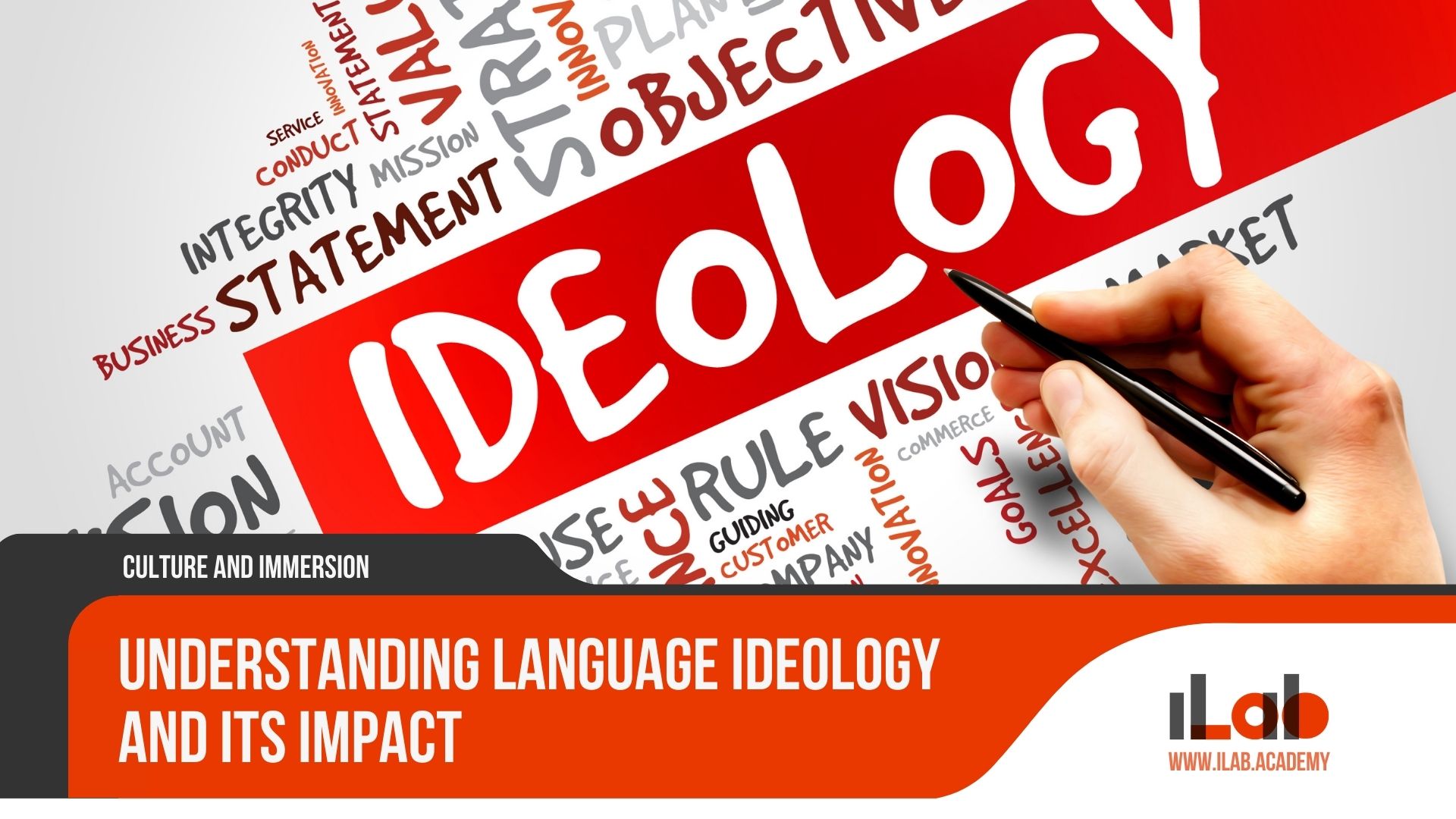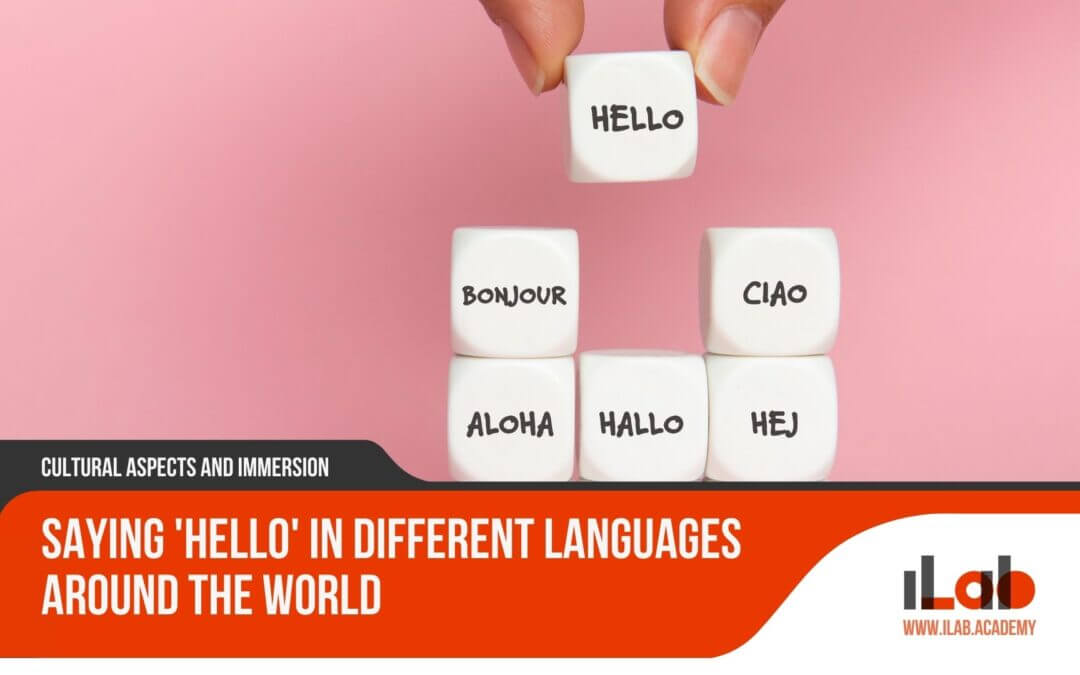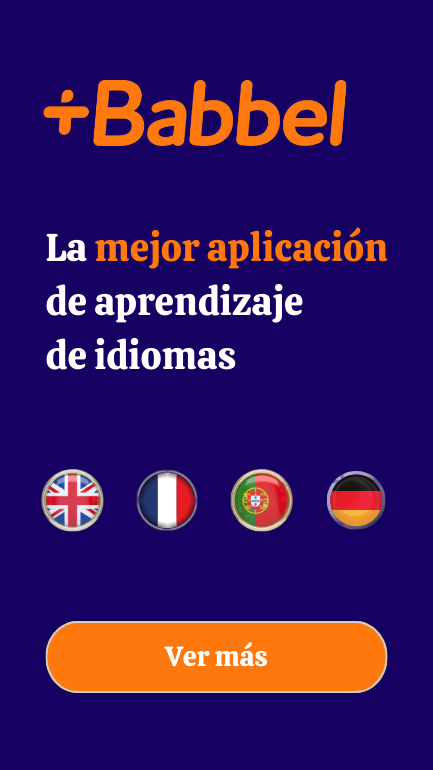Table of contents
The intricate tapestry of language ideology is woven with threads of cultural norms, societal values, and individual beliefs, forming a backdrop against which the power dynamics of communication are played out. It stands at the crossroads of linguistics and anthropology, demanding a nuanced understanding of its impact on social interaction and individual identity. As we embark on a journey to unpack the complexities of language ideology, we must consider how these unseen forces shape not only the words we choose but also the way we perceive and judge others. In tracing the historical context and its evolution, the influence of language ideology in education, governance, gender, and digital communication becomes palpable. By engaging with the subtle, yet profound ways in which language ideology informs our daily lives, we uncover the mechanisms that may reinforce inequality or pave the way for greater inclusivity. This exploration seeks to equip us with the critical tools necessary to challenge the status quo, question our linguistic preconceptions, and ultimately, to consider the potential for cultivating a more equitable linguistic landscape.
Key Takeaways
- Language ideology is a concept that encompasses the beliefs, values, and attitudes surrounding language within cultural, political, and social contexts.
- Throughout history, language ideologies have evolved and shaped societal norms, impacting communication and language use.
- Language ideologies have significant implications in educational settings, influencing language instruction policies and practices.
- Language ideologies also play a role in political discourse, gender roles, national identity, digital communication, consumer behavior, and linguistic equity, highlighting the need for awareness and advocacy to shape inclusive language policies.
What is Language Ideology?
Language ideology refers to the deeply held beliefs and assumptions about language that shape our attitudes, policies, and practices within various cultural, political, and social contexts. It encompasses a broad spectrum of opinions on what language is appropriate in different scenarios, which dialects or languages are deemed prestigious or inferior, and how language relates to identity and power structures.
Understanding language ideology is crucial as it influences how individuals communicate and are perceived by others. It plays a significant role in decision-making processes regarding language education, preservation of minority languages, and even hiring practices. Language ideologies can perpetuate social inequalities when certain dialects or accents are marginalized, thereby affecting the socioeconomic opportunities available to speakers of those language varieties.
In the educational sphere, language ideologies inform curriculum design and teaching methodologies, often favoring ‘standard’ or ‘dominant’ language forms. This can have consequences for students whose home language differs from the institutional norm, impacting their academic performance and self-esteem. In the political arena, language ideologies can be strategically used to garner support, exclude groups, or assert national identity. Politicians often manipulate language ideologies to resonate with certain demographics or to marginalize others.
The pervasiveness of language ideology means it is a factor in nearly every aspect of society, from gender norms and expectations to technological innovation and global communication. It is essential to recognize and critically assess our own language ideologies to foster more inclusive and equitable language practices. This understanding can empower individuals and organizations to challenge linguistic prejudices and advocate for policies that respect and celebrate linguistic diversity.
Language Ideology Throughout History
Throughout the ages, societies have seen their language ideologies evolve, profoundly influencing both personal communication and the broader linguistic landscape. Language ideologies are deeply rooted in the fabric of history, shaping and being shaped by the shifting sands of cultural, political, and social transformations.
In ancient times, language ideologies were closely tied to power and prestige. The spread of Latin during the Roman Empire, for example, was not merely a function of conquest but also an ideological imposition, signaling the dominance of Roman culture and societal norms. As the Empire waned, so did the prevalence of Latin, giving rise to the vernacular languages that would become the national tongues of Europe.
The Renaissance period marked another pivotal moment in the history of language ideology. The humanist emphasis on original texts and the vernacular brought about a renewed appreciation for local languages, setting the stage for the development of modern European languages and the notion of standard language forms.
Language ideology took a different turn with colonialism, where European powers imposed their languages on colonized peoples, often devaluing indigenous languages and cultures. This created linguistic hierarchies that have had lasting impacts on the postcolonial world, where language continues to be a site of political and cultural struggle.
In more recent history, the rise of nation-states has seen language ideologies employed in the service of nationalism and state-building, often at the expense of linguistic minorities. The push for a standardized language within a country’s borders can marginalize other dialects and languages, affecting the identity and rights of speakers.
Understanding the historical context of language ideologies allows us to see the ongoing influence they have on present-day issues of language policy, education, and social justice, providing insight into the complex relationship between language, power, and identity.
Language Ideology in Educational Contexts
Building on the historical perspective, it is essential to consider how the ideological underpinnings of language have permeated educational systems, influencing instruction methodologies and policy decisions. Language ideologies in education often manifest in the ways educators and policymakers prioritize certain languages over others, impacting students’ learning experiences and future opportunities.
The consequences of these ideologies extend to:
Curriculum design:
- Standard Language Ideology: A belief in a single, ‘correct’ form of language that is often reflected in standardized testing, marginalizing dialects and vernacular language forms.
- Literacy Practices: The emphasis on certain literary canons while excluding non-Western or indigenous literatures, thus perpetuating a narrow worldview.
Classroom dynamics:
- Teacher Expectations: Educators may hold biases, consciously or unconsciously, regarding the language abilities of students from different backgrounds, affecting their approach to teaching.
- Peer Interactions: The language used by students can influence classroom hierarchies and peer relationships, with speakers of the ‘standard’ language often being privileged.
For an audience desiring understanding, it is crucial to recognize that these ideologies are not merely abstract notions but have tangible impacts on the educational trajectories of learners. They shape what is taught, how it is taught, and whose voices are heard or silenced within the educational discourse. By critically examining the role of language ideologies in educational contexts, we can work towards more equitable and inclusive educational practices that honor the linguistic diversity of the student population.
Political Power Plays: Language Ideology in Governance
The interplay between language ideologies and governance is a powerful force that shapes both political discourse and the policies that emerge from legislative bodies. Language ideology refers to the beliefs and attitudes that people have about language and its use, which can significantly affect the way political messages are crafted, communicated, and received by the public. It permeates the fabric of political campaigning, where rhetorical strategies are often designed with an acute awareness of the language ideologies held by target audiences.
Politicians and policymakers wield language as a strategic tool to advance their agendas, align with constituents, and marginalize opposition. The choice of words, metaphors, and narratives can encourage solidarity within a political base or exclude and diminish the voices of marginalized linguistic communities. This is evident in legislative debates, where the framing of issues often reflects underlying language ideologies that can privilege certain dialects, languages, or modes of expression over others.
In governance, language ideologies can become institutionalized through legislation that influences educational policies, official language declarations, or immigration regulations. These policies can have profound implications for democratic processes, as they may either foster inclusivity and multiculturalism or lead to the suppression of linguistic diversity and the disenfranchisement of non-dominant language speakers.
The Gendered Aspects of Language Ideology
Language ideologies profoundly shape not only how we communicate but also how we perceive and enact gender roles through our linguistic choices. The nuances of language can subtly reinforce or challenge societal norms, and understanding these gendered aspects is essential for fostering more equitable communication.
Gendered language patterns reflect and perpetuate cultural norms:
- Masculine Defaults: The use of male pronouns or terms as the universal standard often renders women and non-binary individuals linguistically invisible.
- Feminine Marking: Certain languages have grammatical gender systems where femininity is marked by specific endings or forms, potentially emphasizing difference or otherness.
Perceptions of language and power are intertwined with gender:
- Authority and Assertiveness: Speech associated with masculinity, such as directness or lower pitch, is frequently interpreted as authoritative, whereas similar behavior from women can be perceived negatively.
- Politeness and Softness: Women are often expected to use language that is considered more polite, indirect, or emotionally expressive, aligning with traditional stereotypes of femininity.
The implications of these ideologies extend into various spheres of life, influencing professional opportunities, social interactions, and personal identity. Speakers may internalize these norms, which can lead to self-censorship or pressure to conform to linguistic expectations associated with their gender. By critically examining and challenging these language ideologies, individuals and societies can move towards linguistic practices that are inclusive and affirming of all gender identities. This conscious shift has the potential to dismantle stereotypes and promote equality, not only in language but in the broader fabric of our social interactions.
Language Ideology and National Identity
Just as gendered language ideologies can influence personal identity and social roles, national identity is also deeply intertwined with language ideologies that promote certain linguistic standards and marginalize others. The notion of a unified national language has been instrumental in the process of nation-building. It serves not only as a medium of communication but also as a symbol of national unity and identity. However, in the pursuit of linguistic homogeneity, the standardization often comes at the expense of linguistic diversity, leading to the suppression of minority languages and dialects.
Language ideology plays a critical role in shaping the narratives of national pride and belonging. It can be used to construct a common heritage and cultural legacy, which in turn reinforces the idea of a shared national identity. This process of linguistic unification can be observed in historical contexts where the establishment of a national language was essential to the consolidation of political power and the demarcation of national borders.
Moreover, language policies influenced by nationalistic ideologies can have profound effects on education systems, where the chosen language of instruction may privilege certain groups over others. This can lead to social stratification and unequal access to opportunities. In the modern era, the tension between national language ideology and globalization poses new challenges, with English often positioned as a global lingua franca, potentially undermining local languages and identities.
Understanding the intersection of language ideology and national identity is vital for fostering an inclusive society that values linguistic diversity. It requires a critical examination of how language policies and practices reflect and shape the collective identity of a nation, and how they can be designed to accommodate and celebrate the plurality of voices within a state.
Digital Dynamics: Language Ideology in the Information Era
In the information era, digital platforms and social media have become battlegrounds where traditional language ideologies are both contested and redefined. As individuals from diverse linguistic backgrounds interact online, new forms of expression emerge, challenging the norms of standard language. The digital landscape fosters a democratic space where non-standard dialects and vernaculars gain visibility and legitimacy.
The democratization of language through digital means:
- Enables speakers of minority languages to find a voice and audience beyond their local communities.
- Encourages the use of non-standard linguistic features in written communication, often seen in texting and social media posts.
The tension between prescriptive and descriptive language norms:
- Traditionalists may resist the change, advocating for the preservation of ‘correct’ language use.
- Progressives champion the descriptive view, embracing language evolution as a natural consequence of human interaction.
The internet has not only amplified the reach of these ideologies but has also created a space where they can rapidly evolve. Language on the internet is marked by a blend of formal and informal styles, regional slang, internet jargon, and multilingualism, reflecting the complexity of global communication. In this context, the prescriptive rules that once governed language use are increasingly seen as less relevant, giving way to more fluid and dynamic language practices.
This shift has profound implications for writing and language use. It demands a reevaluation of what constitutes ‘proper’ language, especially as digital communication becomes ever more central to personal and professional spheres. In navigating this new digital frontier, individuals and institutions must confront and reconcile these evolving language ideologies, balancing the need for clarity and consistency with the rich tapestry of linguistic diversity that characterizes the digital age.
Language Ideology and the Consumer Sphere
As digital communication reshapes linguistic norms, these evolving trends also profoundly influence consumer behavior and marketing strategies. The rise of social media and digital platforms has led to a rapid transformation in how language is used to engage and entice consumers. Language ideology, deeply rooted in cultural and social practices, now extends its reach into the consumer sphere, navigating a landscape where words can significantly impact brand perception and purchasing decisions.
Understanding language ideologies is crucial for marketers as they develop content that resonates with their target audience. The symbolism embedded in language choices can convey a multitude of messages, from inclusivity to prestige, thereby affecting a brand’s identity and its relationship with consumers. For instance, the use of vernacular language in advertising can create an authentic connection with local audiences, while the strategic use of global lingua francas, such as English, can appeal to a broader, more diverse market.
Furthermore, the narratives constructed around products and services can reinforce or challenge prevailing language ideologies. By promoting linguistic diversity and cultural sensitivity in marketing campaigns, businesses not only expand their reach but also contribute to shaping a more inclusive consumer culture. However, it is a delicate balance; failure to recognize and respect the nuanced complexities of language ideologies can lead to cultural insensitivity and consumer backlash.
In essence, the intersection of language ideology and the consumer sphere is a dynamic space where linguistic awareness can drive market success and foster global connections. Businesses that effectively leverage these ideologies in their communication strategies can enhance their global appeal and establish enduring relationships with consumers from various linguistic and cultural backgrounds.
Confronting Linguistic Prejudice: Advocacy and Language Rights
Challenging negative language ideologies requires concerted advocacy efforts and a commitment to advancing linguistic rights for all communities. At the heart of this movement is the recognition of language as a fundamental human right, intrinsic to cultural identity and personal dignity. Advocacy groups, linguists, and policy-makers work collaboratively to dismantle linguistic prejudice, which often manifests in subtle yet pernicious ways within institutions and social interactions.
Effective advocacy strategies that confront linguistic prejudice:
- Public Education and Awareness Campaigns: Highlighting the richness of linguistic diversity and debunking myths that perpetuate language hierarchies.
- Workshops in schools and communities to foster appreciation for linguistic variety
- Social media campaigns that challenge language shaming and celebrate multilingualism
- Policy Advocacy and Legislative Change: Lobbying for laws that protect the language rights of minority and indigenous communities.
- Support for bilingual education and the preservation of endangered languages
- Legal frameworks ensuring fair language use in governmental and public domains
The above initiatives create an imagery of inclusivity, where every voice, irrespective of its linguistic origin, contributes to the societal symphony. The impact of such advocacy is far-reaching, altering perceptions and influencing norms that dictate which languages are valued. This shift towards linguistic equity not only enriches the tapestry of human communication but also bolsters social cohesion and mutual respect.
Language rights activism is integral to society’s progression towards true inclusiveness, where linguistic diversity is not just tolerated but embraced. By making concerted efforts to confront linguistic prejudice, we pave the way for a future where every individual has the opportunity to speak and be understood in their own tongue, free from discrimination or diminishment.
Crafting a Future of Linguistic Diversity
To secure a future rich in linguistic diversity, we must proactively shape language policies that acknowledge and celebrate the multitude of voices within our global community. Crafting such a future requires a forward-thinking approach that embraces the complex tapestry of human language as a cornerstone of cultural heritage and personal identity. As we navigate the influence of language ideology, the need for policies that protect and promote linguistic diversity becomes paramount in a globalized world.
This prospective view on the evolution of language ideologies calls for active engagement from various stakeholders, including policymakers, educators, activists, and communities themselves. Inclusive linguistic environments are not merely the result of passive tolerance but are cultivated through deliberate and concerted efforts. Language policies must therefore be designed to provide equitable opportunities for all language users, recognizing the intrinsic value of each linguistic variety.
These policies should encompass a range of measures, from educational initiatives that support mother-tongue instruction to media representation that reflects linguistic diversity. Moreover, the promotion of multilingualism can enhance mutual understanding and global cooperation. By integrating respect for linguistic diversity into the fabric of international relations and commerce, we can counteract the dominance of a few global languages and mitigate the risks of language endangerment.
Frequently Asked Questions
How Do Language Ideologies Affect the Integration and Acceptance of Slang and Colloquialisms Into Standard Language Use?
Language ideologies significantly influence the integration of slang and colloquial expressions into standard language. Predominant cultural attitudes and institutional norms often dictate which linguistic forms gain acceptance. Consequently, certain vernaculars may be embraced or marginalized. This dynamic shapes the evolution of language, impacting both formal and informal communication. Understanding these ideologies is crucial for appreciating the fluid boundaries of language and the social factors governing linguistic change.
Can Individual Multilingualism Influence or Challenge Prevailing Language Ideologies?
Individual multilingualism can indeed influence prevailing language ideologies. Multilingual individuals, by navigating and blending different linguistic frameworks, inherently challenge monolingual norms and promote linguistic diversity. Their daily communicative practices can gradually shift perceptions, fostering acceptance of multiple languages within societal and institutional contexts. Therefore, multilingualism acts as a dynamic force that can reshape long-standing language ideologies, advocating for a more inclusive linguistic landscape.
What Role Do Language Ideologies Play in the Preservation or Decline of Endangered Languages?
Language ideologies significantly affect the survival or erosion of endangered languages. They shape societal attitudes and policies, either promoting preservation through positive valuation and active use or contributing to decline by perpetuating stigmas and favoring dominant languages. Consequently, the ideologies held by communities and policymakers are pivotal in determining whether endangered languages are revitalized or continue to face extinction. Addressing these ideologies is essential for language preservation efforts.
How Might Language Ideologies Contribute to the Dynamics of Humor and Satire in Different Cultures?
Language ideologies shape humor and satire across cultures by influencing which linguistic forms and narratives are considered humorous or acceptable for mockery. These ideologies inform societal perceptions of different dialects, languages, and speech patterns, often determining the comedic value or appropriateness of linguistic content. Understanding these cultural nuances is key to appreciating the role language plays in humor and how it can reinforce or challenge social boundaries.
In What Ways Do Language Ideologies Intersect With Legal Systems, Affecting the Interpretation of Laws and the Rights of Non-Native Speakers?
Language ideologies profoundly influence legal systems, shaping how laws are interpreted and applied. They can affect courtroom discourse and the treatment of non-native speakers, potentially impeding equitable access to justice. It’s crucial to recognize the role of linguistic biases within legal contexts to ensure that language diversity does not compromise the rights or the fair treatment of individuals interacting with the justice system.
Conclusion
In conclusion, the exploration of language ideology reveals its pervasive influence on societal structures and individual interactions. Through historical contexts, educational systems, governance, gender constructs, digital communication, and consumerism, ideological underpinnings shape perceptions and actions regarding language. Addressing linguistic prejudice and advocating for language rights are vital steps towards fostering an environment that values linguistic diversity. Acknowledging and challenging these ideologies is essential for crafting inclusive policies that honor the multiplicity of voices within a society.







